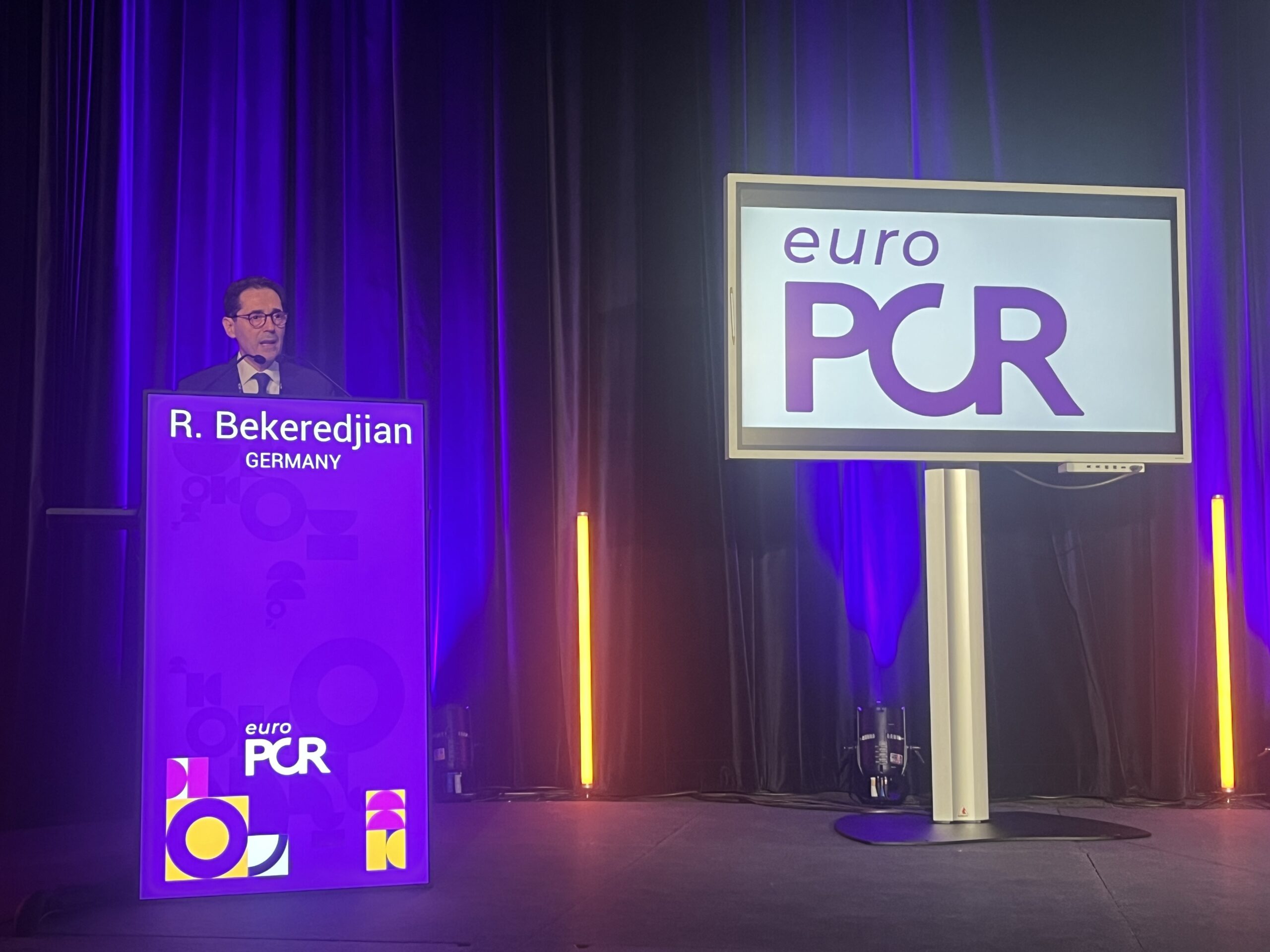
Two-year outcomes from the bRIGHT registry, a prospective multicentre registry detailing real-world results of tricuspid transcatheter edge-to-edge repair (TEER) using the Triclip (Abbott) system, have demonstrated “sustained” reductions in tricuspid regurgitation (TR) seen with the device.
These were among results shared during a late-breaking presentation at the 2025 EuroPCR meeting (20–23 May, Paris, France) by Raffi Bekeredjian (Robert-Bosch-Krankenhaus, Stuttgart, Germany).
Bekeredjian described the patients represented in the registry as being elderly, with an average age of 79 years, having multiple comorbidities and suffering from complex tricuspid pathology—with massive or torrential tricuspid regurgitation present in 88% of patients.
“The first question we tried to answer was whether the TR reduction was sustained throughout these two years. After 30 days we had a very significant reduction compared to baseline,” said Bekeredjian reporting that 83% of the 511 patients treated within the study were observed to have moderate or less TR at the two-year timepoint.
At two years, all-cause mortality stood at 26.4%, with 14.5% deemed to be of cardiovascular causes. Major bleeding occurred in 12.7% of cases, with 4.5% due to device- or procedure-related causes.
The second question Bekeredjian and colleagues hoped to answer was whether there would be a significant improvement in heart failure symptoms after two years compared to baseline. “NYHA functional class is significantly lower at two years compared to baseline,” he reported, with 20% of patients in NYHA class I, 49% in class II, and 29% in class III at two years.
The study team also looked at heart failure hospitalisation rates, comparing the year before the Triclip implantation to the first and second year after the implantation in order to see if the procedure would have any impact on hospitalisation rates due to heart failure, demonstrating that this was indeed significantly reduced at two years.
Gauging the impact of residual TR on two-year mortality, Bekeredjian and colleagues found no difference in two-year survival among patients with 30-day residual TR of moderate or less (24.4%), compared to a higher rate among those whose TR grade at 30 days was deemed to be severe or higher (41.7%).










